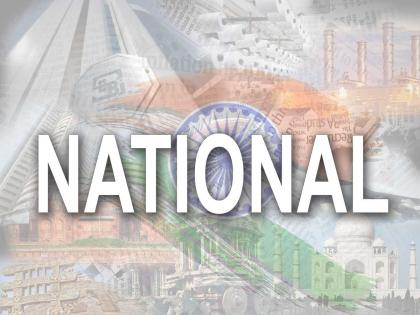Infra, rural India key beneficiaries of Budget (Opinion)
By IANS | Published: February 1, 2020 06:51 PM2020-02-01T18:51:04+5:302020-02-01T19:00:33+5:30
was presented by Finance Minister Nirmala Sitharaman on Saturday. It was an extremely long budget and took about 150 minutes to be presented. People from different walks of life would have diametrically opposite views on the Budget and would rate it from 3 to 7 on a scale of 10.

Infra, rural India key beneficiaries of Budget (Opinion)
The stock market with which I am associated was down sharply and the BSESENSEX lost 987.96 points or 2.43 per cent to close at 39,735.53 points. NIFTY lost 300.25 points or 2.51 per cent to close at 11,661.85 points. The biggest disappointment for the market was the fact that there was nothing mentioned about long-term capital gains tax.
A lot has been proposed for the agriculture sector and aspirational India. Details on this in the subsequent piece.
The key takeaway from the Budget of 2020-21 is the fact that the government believes that investment in infrastructure will kickstart the economy and generate employment and also trigger a multiplier effect. The Budget also proposes to monetise 12 lots of 6,000 kms of national highways by 2024. The government plans accelerated development of highways which would include access controlled highways, economic corridors, coastal roads and strategic highways.
The Budget has extended 100 per cent tax exemption to the interest, dividend and capital gains income on investment made in infrastructure and priority sectors before 31st March, 2024 with a minimum lock-in period of 3 years by the Sovereign Wealth Fund of foreign governments. It is believed that a large amount of investment would come through this route and the announcement made today would make the investment in long term infrastructure projects attractive.
The Budget proposes to sell the entire stake in IDBI Bank through the secondary market and this would be a test case for PSU banks' divestment in future. It is also proposed to list Life Insurance Corporation of India Limited through an IPO during the course of the year. It is widely believed that this IPO as and when it happens would have a similar effect on the market as the Aramco issue in Saudi Arabia. Rough estimates talk of a valuation of 10 lakh crore for the IPO or thereabouts.
On the personal income tax rate, the Budget proposes a change in rates with a caveat that deductions would be abolished. It offers both options of the old scheme with deductions and new scheme with lower tax rate and no deductions. The biggest casualty of this were the life insurance companies like SBI Life, HDFC life and ICICI Prudential which lost considerable ground. The fall was on account of the fact that in India insurance is primarily done as a tax saving exercise and not for investment or protection. Further the announcement of LIC IPO too would act as a dampener in the longer term.
Dividend Distribution tax has been shifted from the company which declares dividends to the shareholder who would now pay the same depending on his/her individual income. This would be helpful to FPIs as the payout from dividends would increase and they would get a credit for the tax paid on dividend.
Seeing the success of the resolution scheme in service tax, the Budget has proposed the same in direct taxes as well. This would free up a lot many cases and also money for the government.
The Budget has recognised the importance of ESOPs for start-ups and given them benefit in terms of tax treatment on ESOPs.
Deposit Insurance and Credit Guarantee Corporation (DICGC) permitted to increase Deposit Insurance Coverage to Rs 5 lakhs from Rs 1 lakh per depositor. This is to instil confidence in the public after what happened in some of the cooperative banks in recent times.
Customs duty on products such as ACs, refrigerators, footwear and other goods which are made in India has been raised. The idea is to promote 'Make in India' and discourage imports. The finance minister's favourite item for umpteen number of years, cigarettes, has not been spared this year either and taxes were raised.
Markets have fallen significantly today post the budget. The silver lining is that historically they have rallied on the next day after the Budget. I believe 2020 will be no different. The fine print needs to be read and analysed.
(Arun Kejriwal is the founder of Kejriwal Research and Investment Services. The views expressed are personal)
( With inputs from IANS )
Open in app